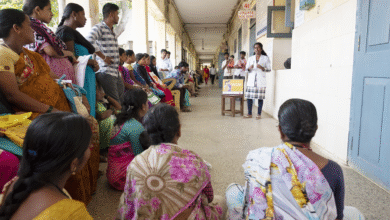Scientists discover the receptor that helps your brain clean itself—and fight Alzheimer’s

UCSF scientists have found how small glial cells swallow and break the amyloid beta, a protein that accumulates in Alzheimer’s illness, with devastating penalties on the mind.
In Alzheimer’s illness, proteins reminiscent of beta amyloid type teams, generally known as work, which trigger mind injury.
However in some individuals, the immune cells known as the small glial cells are destroyed by these proteins earlier than inflicting hurt. This results in a fewer and smaller quantity – and extra reasonable signs.
Researchers on the College of California, San Francisco, have recognized a molecular future that permits small glial cells to do away with the bita -amyloid work.
With out receptors, adgrg1, small glial cells are barely clarified on poisonous protein. Utilizing a mouse mouse for Alzheimer’s illness, the researchers observed how ADGRGG1 loss led to a speedy accumulation of amyloid work, nervous degeneration, studying and reminiscence issues.
“We consider this future helps in doing their work in sustaining mind well being for a few years,” stated Xianhua Piao, PhD in Drugs, PhD in Pediatrics at UCSF.
In truth, when the researchers re -analyzed a earlier research of genetic expression within the human mind, they discovered that the people who died as a consequence of delicate Alzheimer’s illness had small glial cells with ample adgrg1, and reasonable cognitive weak point – which implies that small glial cells got here effectively and maintained the illness. However for individuals who died as a consequence of extreme Alzheimer’s illness, the small glial cells didn’t have AdGRG1, and the work unfold.
Adgrg1 is likely one of the a whole lot of G -Protein receptors, that are routinely focused within the growth of the drug. This guarantees good for a fast translation to find new therapies.
“Some persons are fortunate as a result of they’ve accountable micrographic cells,” stated Piao. “However this discovery creates a chance to develop medicines to make small glial cells efficient in opposition to amyloid beta in everybody.”
Authors: Different Ucsf authors are Becca Chu, PhD, Andy Wangsu, PhD, Dianconu, PhD, Tao Lee, PhD, Rachel Schmidt, Stacy L. Grinberg, MD, PHD, Salvatore Spina, MD, PHD, Richard M. Ransohoff, MD, Arnold R. Kriegstein, MD, PHD, William W. Seley, MD, and Tomasz Nowakowski, PHD.
Funding: This work was partially funded by the Nationwide Institutes of Well being (P01ag019724, P50Ag023501, R01NS094164, R01NS108446, K99ag081694), Unionia Prontotemport Analysis, The Tau Consortium, The Alzheimer’s Affiliation (23AARG -NTF-1030341), Treatment alzheimer field, and BRIGHTFOCUS Basis Postdocontal (A2021020F).
2025-07-27 12:35:00





